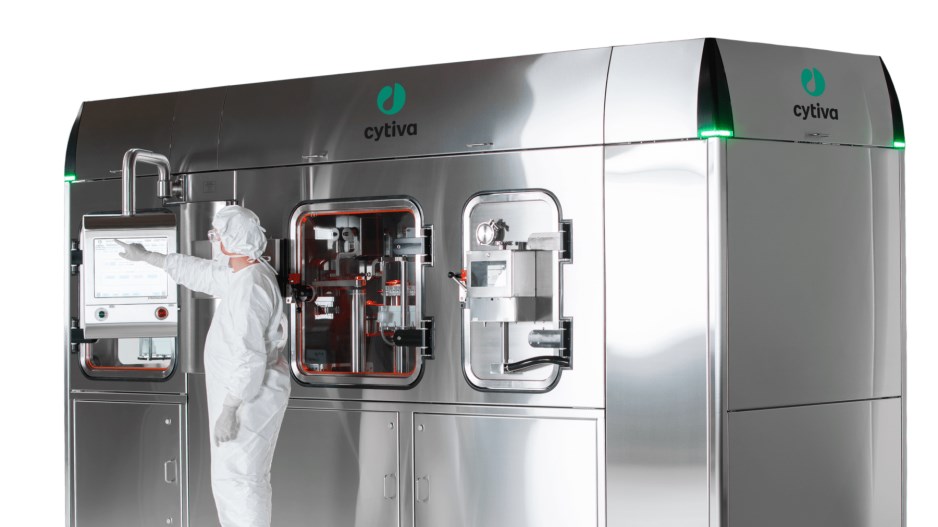The former CEO of B.C.-founded Vanrx Pharmasystems Inc. once likened certain traditional biotech manufacturing practices to how Homer from The Simpsons completes his tasks at the nuclear plant.
“That's kind of the status quo for industry, of people from awkward angles, and rubber gloves trying to accomplish this,” Chris Procyshyn told BIV early last year.
His technology — machines capable of safely filling liquid drugs into vials, syringes and cartridges — caught the eye of deep-pocketed American life sciences company Cytiva, which acquired Vanrx in February 2021.
After some delays following the acquisition, Cytiva officially opened the doors this week to a 126,000-square-foot biotech plant in Burnaby that’s tapping Vanrx’s robotics-back technology.
The space is larger than the 113,000-square-foot plant Cytiva planned to open in the second quarter of this year, and the new parent company says it will be able to boost Vanrx’s previous capacity for these drug filling machines by 200 per cent.
Vanrx’s machines use hydrogen peroxide vapor, robotic components and machine-vision cameras to autonomously inject liquid drugs into items like vials enclosed within a clean environment to ensure all components remain sterile.
Or as Procyshyn once put it: “Open them, fill them, close them and complete them, all without the use of humans directly in the process.”
Customers have been using the machines for everything from animal tranquilizers and gene therapies to personalized medicines and messenger RNA (mRNA) drugs.
Vanrx was Cytiva’s first acquisition after U.S. medical giant Danaher Corp. took over GE Life Sciences in 2020 as part of a US$21.4 billion deal. GE Life Sciences subsequently rebranded as Cytiva.
Danaher has also taken a liking to fellow B.C. biotech firm Precision NanoSystems Inc. (PNI), acquiring the West Coast company in June 2021.
PNI is best known for producing technology to develop and manufacture genetics medicines that deliver RNA or DNA directly into cells to treat disease at its molecular root cause. PNI specializes in self-amplifying RNA vaccines, which have the potential to create more potent vaccines as they amplify the signal, allowing PNI to manufacture more doses for less volume.
PNI is in the midst of building its own $50-million biomanufacturing facility in Vancouver’s False Creek Flats. This comes after the federal government revealed in February 2021 it was earmarking $25 million for the plant as part of a bid to shore up the country’s domestic vaccine manufacturing capacity.
After Danaher bought PNI in spring 2021, the company insisted it would still meet its obligations to Ottawa.
Meanwhile, the new Cytiva facility also houses a research and development centre, and will serve as the base for Cytiva’s aseptic filling business.
The original Vanrx manufacturing plant still remains in operation in Burnaby but production will be fully transferred to the new site by the end of the year. Manufacturing at the new facility is expected to begin in September.
Cytiva’s local headcount has doubled from 100 to 200 workers since the 2021 acquisition.



